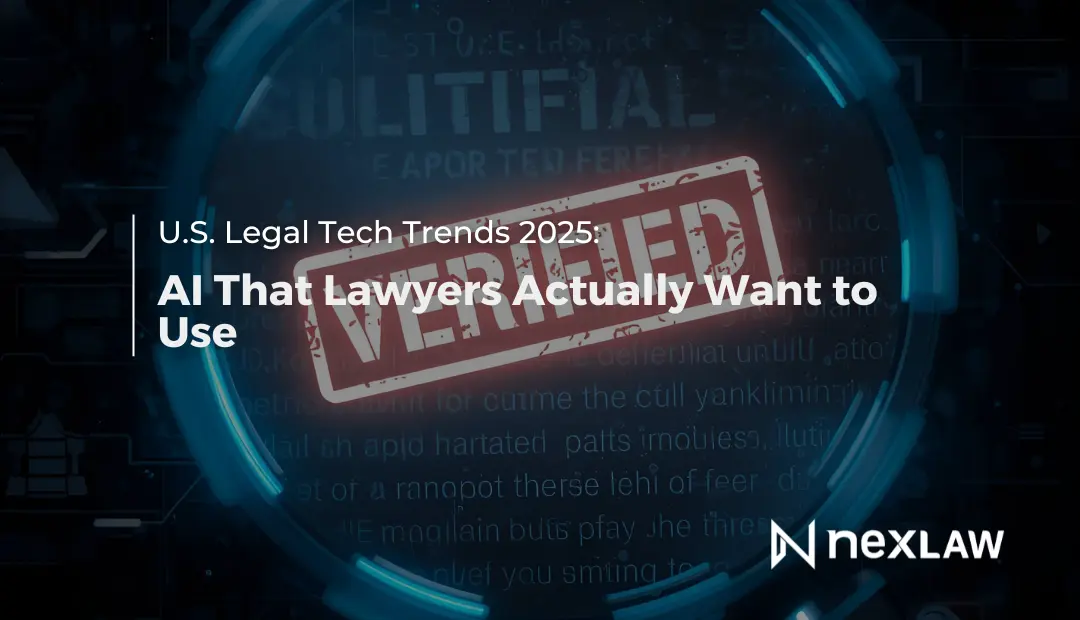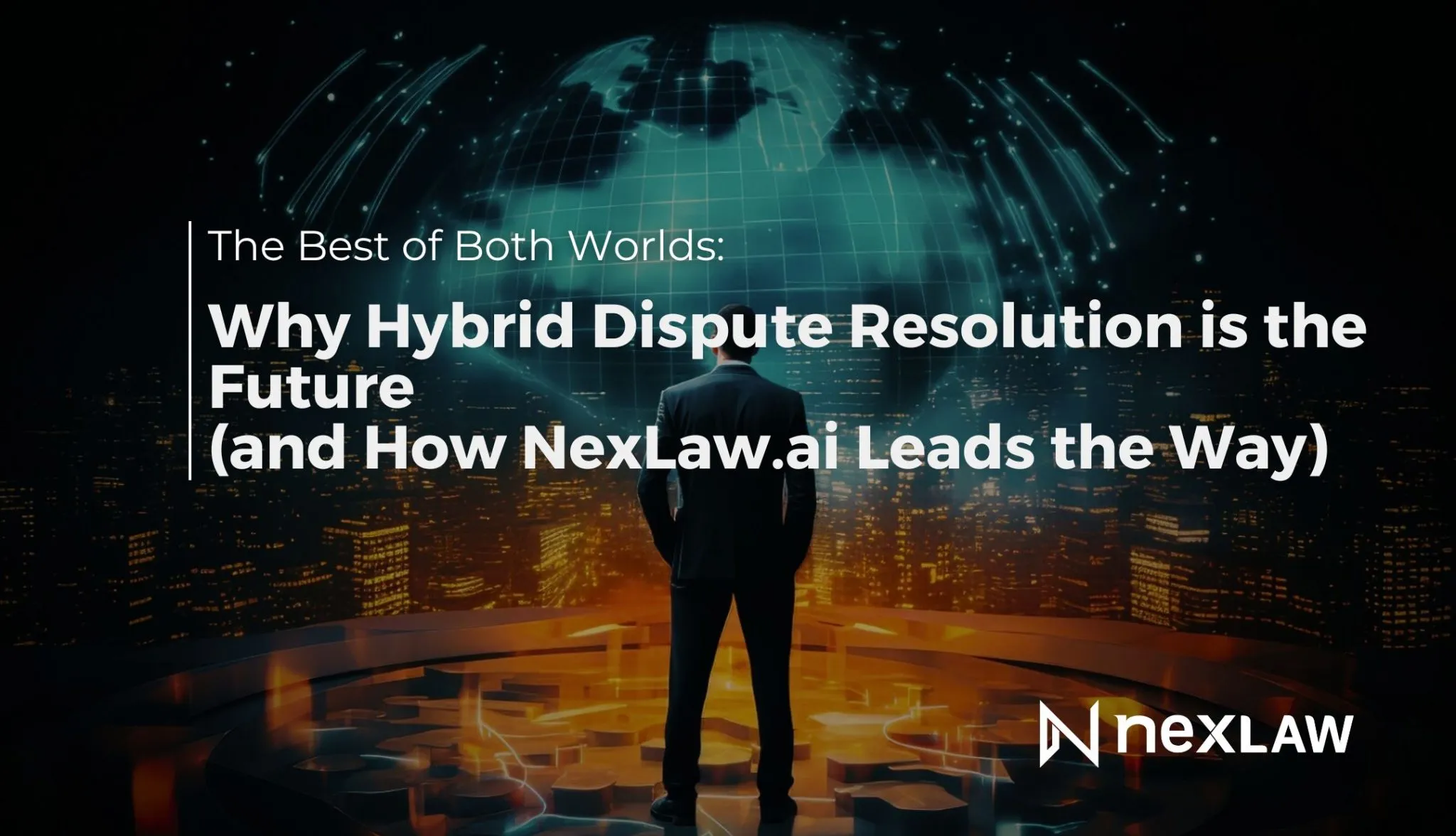AI in the Legal Industry: How Artificial Intelligence is Redefining UK Law Firms for the Next Decade
Introduction: The Dawn of AI in UK Legal Practice
Artificial intelligence (AI) is no longer a distant concept for the UK legal sector. Over the last few years, AI-powered tools have moved from experimental pilots to essential elements of legal practice. According to the 2024 Future of Professionals Report by Thomson Reuters, 77% of legal professionals believe AI will have a high or transformational impact on their work within five years-a 10% increase from the previous year.
This rapid adoption is driven by the need for efficiency, accuracy and innovation in a competitive legal market. UK law firms, from Magic Circle giants to regional boutiques, are leveraging AI to streamline operations, improve client outcomes and stay ahead in an evolving regulatory environment.
Unlock Legal Insights Instantly
AI Applications in the UK Legal Sector
AI is fundamentally changing how legal work is performed in the UK. Below are the main areas where AI is making a significant difference:
1. Legal Research
AI-powered platforms such as LexisNexis and Westlaw Edge are transforming legal research by:
- Speeding up case law searches: AI algorithms scan thousands of documents in seconds, surfacing relevant precedents and statutes.
- Summarising complex information: Tools can summarise lengthy judgments and legal opinions, saving hours of manual reading.
- Ensuring accuracy: By referencing only reputable, up-to-date sources, these tools reduce the risk of missing critical information.
Impact:
According to the Future of Professionals Report, AI could save legal professionals up to 4 hours per week on research tasks, translating into substantial productivity gains and increased billable hours.
2. Contract Analysis and Automation
AI is revolutionising contract work in the UK legal sector:
| Application | Description | Real-World Impact |
|---|---|---|
| Contract Review | AI scans and analyses contracts for risks, compliance and key clauses | Reduces review time by over 60% |
| Document Drafting | Automated drafting of standard legal documents | Minimises human error, saves time |
| Due Diligence | Bulk analysis of contracts in M&A or regulatory matters | Accelerates complex transactions |
Example:
VWV Law Firm invested £250,000 in AI for contract reviews and legal drafting, resulting in faster turnaround and improved client satisfaction.
3. Case Prediction and Litigation Support
AI is now assisting UK lawyers in predicting case outcomes and supporting litigation strategy by:
- Analysing historical case data, judge behaviour and legal arguments.
- Offering predictive insights into likely outcomes, helping lawyers advise clients with greater confidence.
- Assisting in e-discovery and evidence analysis, especially in large-scale inquiries.
Case Study:
Norton Rose Fulbright used AI-assisted e-discovery tools during the UK government’s COVID-19 inquiry, handling vast volumes of digital evidence efficiently.
4. Client Interaction and Service Delivery
AI is also enhancing the client experience:
| Application | Benefit |
|---|---|
| AI Chatbots | Provide instant responses to client queries 24/7 |
| Personalised Advice | Analyses client data for tailored legal solutions |
| Real-Time Updates | Generates customised reports and case updates |
UK clients increasingly expect rapid, transparent and cost-effective legal services. AI enables law firms to meet these demands while freeing up lawyers for high-value advisory work.
Regulatory Landscape and Compliance
The UK is at the forefront of developing a robust regulatory framework for AI in legal practice:
| Regulatory Body | Role |
|---|---|
| Solicitors Regulation Authority (SRA) | Ensures AI use aligns with professional ethics and standards |
| UK GDPR & Data Protection Act 2018 | Governs AI-driven data processing and privacy |
| Law Society Guidelines | Emphasises transparency, fairness, and accountability in AI applications |
Recent Developments:
The SRA has issued guidance on the ethical use of AI, stressing the need for human oversight and transparency. The Law Society is actively updating its guidelines to address emerging AI risks and opportunities.
Ethical Considerations and AI Risks
While AI offers significant advantages, it also presents new challenges for the UK legal profession:
| Risk | Impact |
|---|---|
| Algorithmic Bias | AI decisions may reflect biases in training data, leading to unfair outcomes |
| AI Hallucinations | AI-generated legal research may include fabricated case citations or incorrect information |
| Data Privacy | AI tools must comply with strict UK data protection laws |
| Over-Reliance | Excessive trust in AI could undermine professional judgment and client trust |
Survey Insights:
- 96% of UK legal professionals believe allowing AI to represent clients in court is “a step too far.”
- 43% of professionals worry about the quality of AI-generated output.
- 37% are concerned about data protection and confidentiality.
Best Practices:
- Maintain rigorous human oversight of AI outputs.
- Establish clear in-house policies for AI use.
- Participate in industry-wide efforts to develop codes of ethics and certification.
Case Studies: AI Success Stories in UK Law
AI is already delivering tangible benefits to UK law firms of all sizes:
| Law Firm | AI Application | Outcome |
|---|---|---|
| Allen & Overy | Harvey AI for research/drafting | Faster, more accurate document production |
| Norton Rose Fulbright | AI-assisted e-discovery | Efficient handling of large-scale inquiries |
| VWV Law Firm | Contract review/drafting AI | Improved turnaround, client satisfaction |
| Clifford Chance, Linklaters | Contract review, due diligence | Reduced transaction times, increased accuracy |
Productivity Gains:
43% of UK solicitors report higher productivity with AI, and over 20% say AI has improved their work-life balance by automating tedious tasks.
Future Trends and Predictions
The future of AI in the UK legal industry is bright, but it will require adaptation and vigilance:
| Trend | Description |
|---|---|
| Increased AI Adoption | More firms will integrate AI into daily operations |
| Stronger Regulations | The UK government will refine AI policies to ensure ethical compliance |
| AI-Powered Litigation Support | AI will assist in case strategy, evidence analysis, and predictive analytics |
| New Legal Roles | Demand for AI specialists, tech-savvy lawyers and cybersecurity experts |
Emerging Skills:
85% of legal professionals believe AI will require them to learn new skills, including adaptability, problem-solving, creativity and communication.
Top Emerging Roles:
- AI-specialist professionals (39%)
- IT and cybersecurity specialists (37%)
- AI implementation managers (33%)
- AI-specialist trainers (32%)
Conclusion: NexLaw and the Future of AI in UK Legal Services
AI is revolutionizing the UK legal industry, offering unprecedented efficiency, accuracy and innovation. However, this transformation comes with challenges-ethical boundaries, regulatory compliance and the need for human oversight.
Law firms that invest in AI literacy, ethical frameworks and robust data protection will thrive in this new era. The role of the lawyer is evolving from document producer to trusted advisor, supported by AI-driven insights and automation.
NexLaw stands at the forefront of this transformation, helping UK law firms harness AI responsibly and effectively. By partnering with technology leaders, investing in training and prioritising ethical innovation, NexLaw empowers legal professionals to automate routine tasks, deliver faster and more accurate client services and focus on higher-value strategic work. This approach not only boosts productivity and client satisfaction but also ensures that legal services remain trustworthy, compliant and adaptable to the rapidly evolving demands of the UK legal market.










